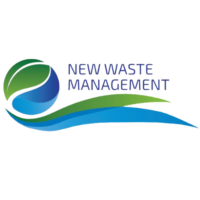As the UK rolls out Extended Producer Responsibility (EPR) for packaging, local authorities are poised for one of the most consequential shifts in modern waste policy. The principle behind EPR is simple: those who produce packaging should pay for its full lifecycle, from production to disposal. But for councils, the implications are far more complex—financially, operationally, and strategically.
In this edition, we explore what EPR really means for sustainability in local government and how councils can respond confidently and impactfully.
Understanding EPR – What’s Changing?
Under the EPR regulations implemented from 2024 through 2025, packaging producers will become financially responsible for the full net cost of managing packaging waste. This includes the costs of:
- Collection and recycling
- Litter management
- Public education and awareness campaigns
- Compliance reporting and data systems
Local authorities have long borne the cost of these responsibilities. With EPR, that cost burden begins to shift, but not without new expectations and uncertainty.
Why This Matters for Council Sustainability Strategies
For councils striving to meet climate targets, increase recycling rates, and cut operational emissions, EPR presents both a risk and an opportunity.
Risks:
- Uncertainty around funding: Councils are concerned that funds collected under EPR may not be distributed fairly or sufficiently to cover their actual costs.
- Data and reporting pressures: New systems will be required to report packaging collection data, adding complexity to already stretched operations.
- Short implementation timelines: Councils may be expected to deliver results on policies that are still evolving.
Opportunities:
- Reduced cost burden: With producers footing more of the bill, councils can reinvest in public engagement, infrastructure, and innovation.
- More recyclable packaging: As producers adapt to minimise costs, better design will reduce contamination and landfill reliance.
- Improved sustainability alignment: Councils can more easily align with Net Zero and circular economy goals by prioritising low-waste systems.
The Role of Local Authorities – Beyond Compliance
It’s easy to treat EPR as a compliance exercise. But the councils that gain the most from it will treat EPR as an opportunity to lead on sustainability. This means:
- Reviewing local waste and recycling data systems
- Developing clear communication strategies for residents
- Aligning recycling contracts and sorting systems with EPR definitions
- Engaging with local producers, retailers, and community stakeholders
According to DEFRA, the ultimate aim of EPR is to incentivise more sustainable packaging and build a closed-loop recycling economy. Councils are the operational enablers of that vision.
What NWM Can Do to Support
At New Waste Management Ltd, we support local authorities in turning EPR from a policy challenge into a sustainability asset. Our services include:
- Auditing existing systems for EPR readiness
- Data mapping and reporting framework support
- Behaviour change campaign design to reduce contamination
- Strategy development for food waste, plastics, and packaging streams
- Community and stakeholder engagement programmes
We understand that clarity, compliance, and communication will be the key to success.
Final Thought
EPR is more than a policy change. It’s a system-wide rebalancing of responsibility, accountability, and sustainability in waste management. Councils must be ready to lead.
If you’re unsure how EPR will affect your operations, budgets, or recycling performance, now is the time to act.
Visit www.newwastemanagement.com or contact us to schedule a discovery session tailored to your council’s needs.
#EPR #ExtendedProducerResponsibility #LocalGovernment #Sustainability


